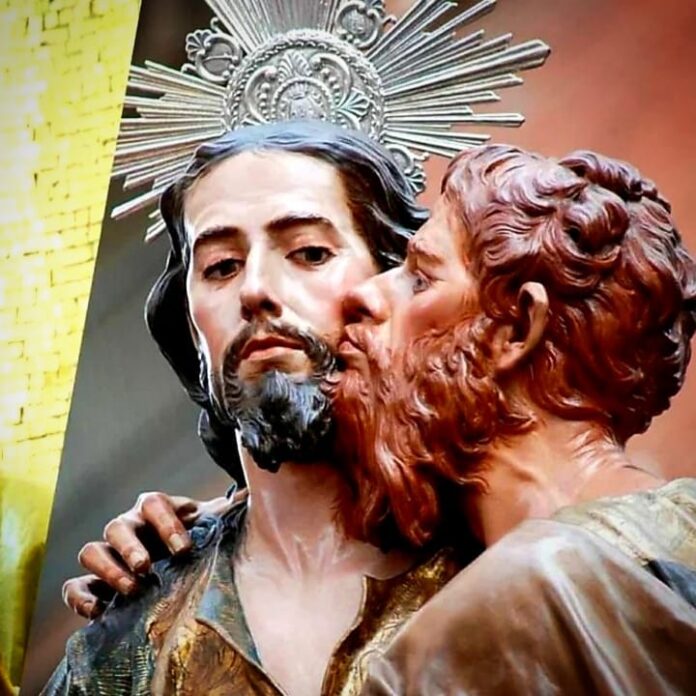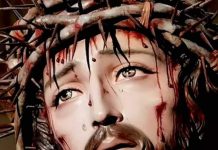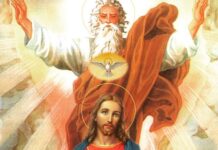Stay blessed and be a blessing. Hope you enjoy reading the Book of Revelation. Today we are studying just five verses ( Rev 2:12-17). It is about the church in Pergamum. Variously referred to as Pergamum, Pergamon or Pergamus, this ancient city of Asia Minor was located near to the modern city of Bergama in Turkey. Pergamum was an important religious and cultural centre in this part of the Roman Empire, and for nearly two centuries it served as the capital city of the province. Pergamum had to its credit the biggest altar for Zeus, the Greek god. In the Roman era, when Caesar was worshipped as god, a big temple in his honor was also built there in BC 27, and tradition says that this was the biggest of altars dedicated to Caesar.
Pergamus is the classic example of a compromising church. When we studied the churches in Ephesus and Smyrna, we observed that they never yielded to any kind of compromises. They stood their ground in the face of persecution. They were the archetypes of early churches. When time passed, an element of compromise crept in, which ultimately corrupted the church’s soul. The only weapon that could destroy this spirit of compromise is the Word of God. This is the reason Jesus introduces himself to the church in Pergamum in relation to the Word. “These are the words of him who has the sharp two edged sword’ (Rev 2:12). The Bible tells us about only one kind of two edged sword and it is the Word of God. It will hurt the preacher as well as the listener. It will hurt the believer as well as the onlooker. Whichever direction it moves, those who come in its path will experience its sharpness.
The first reference about this two edged sword is seen in the Book of Genesis. It is not a coincidence that the last book of the Bible also tells about it. Though the contexts are different, the purpose is the same. Let us first look at what the Book of Genesis says. ‘He drove out the man; and at the east of the garden of Eden he placed the cherubim, and a sword flaming and turning to guard the way to the tree of life’ (Gen 3:24). The Scripture says that to gain re-entry into paradise, man should pass through the test of this sword. In the Book of Revelation we read about a Rider on the White Horse; ‘ From his mouth comes a sharp sword with which to strike down the nations, and he will rule them with a rod of iron’ (Rev 19:15). Jesus is warning the church in Pergamum that the sword, otherwise reserved for the nations, will have to be used against those in Pergamum too if they follow a teaching against the true gospel. We once again see a mention about this sword, after the incident of capturing the beast and the false prophet and throwing them alive into the lake of fire that burns with sulphur; ‘And the rest were killed by the sword of the rider on the horse, the sword that came from his mouth’ (Rev 19:21).
Jesus acknowledges that the faithful of Pergamum were living in a place where Satan’s throne is located. “I know where you are living, where Satan’s throne is’ (Rev 2: 13). This is a direct reference to the temple of Zeus and also the altar dedicated to Caesar to be honored as god. Jesus knows how difficult it is to live a life of faith in a predominantly godless land. Jesus appreciates the church in Pergamum for holding fast to his name and not denying their faith in him. ‘ Yet you are holding fast to my name, and you did not deny your faith in me even in the days of Antipas my witness, my faithful one, who was killed among you, where Satan lives (Rev 2:13).
When we know how Antipas was martyred, we also will appreciate the church in Pergamum that he led as bishop. Antipas was martyred during the reign of Nero, by burning in a brazen bull-shaped altar. Indeed a cruel death for the sake of the name of Jesus Christ! Even this horrible incident could not shake the faith of the Church in Pergamum. They held fast to their faith, proudly proclaiming the name of Jesus Christ.
Then what happened? From a church that persevered in persecutions, they gradually slipped into complacence, and complacence led to compromise. Compromise in turn led them to water down their faith. In Pergamum the political state had a religion of its own and its tenets were totally alien to what Christians believed. When the church entered into an unholy alliance with such a state, the natural consequence was that the vices of their religion permeated into the church also. The most dangerous partnership in the world is the one between a religious authority and a political authority. Here it is worth remembering the words of St Antony of Egypt (AD 251- 356): “Men will surrender to the spirit of the age. They will say that if they had lived in our day, Faith would be simple and easy. But in their day, they will say, things are complex; the Church must be brought up to date and made meaningful to the day’s problems. When the Church and the world are one, then those days are at hand because our Divine Master placed a barrier between His things and the things of the world.” In Antony’s prophecy, ‘those days’ mean end days, and end days mean these days. He was prophesying that when the affairs of the church are adjusted to please the world, it is a sure sign of the end times.
What was the root cause for the church in Pergamum getting corrupted? Jesus says that the corruption came through following the teaching of Balaam. Who was this Balaam? From the Book of Numbers, we understand that Balaam was a prophet of high standing in those days. Though not an Israelite, he could hear the voice of the True God. When Balak, the king of Moab invited Balaam to curse the Israelites, Balaam answered that he could not curse the people whom the Lord had blessed. Yet, his avarice led him to give evil advice to Balak. He advised Balak to send the women of Moab to the camps of the Israelites to seduce their men. And that strategy worked. Men of Israel committed adultery with the women of Moab and that brought a heavy chastisement upon them. Once they broke the sixth commandment, breaking the all important first commandment was only a matter of time.
The pattern is similar even today. Sexual immorality leads to idolatry and worship of false gods. Now look around. Are we not living in a world where everything against the sixth commandment is made legally permissible? Our generation has created our own gods instead of the true living God. And in the process we reject the true God and his only son Jesus Christ. Judgement will follow but never think that on the last day, Jesus is going to judge those who rejected him. Jesus says: “I do not judge anyone who hears my words and does not keep them, for I came not to judge the world, but to save the world. The one who rejects me and does not receive my word has a judge; on the last day the word that I have spoken will serve as judge’ (Jn 12:47-48). Yes, the Word of God is a sword and it is an instrument of judgement too.
Why did Balaam hesitate to curse the Israelites? We know that Balak took Balaam first to Bamothbal and then to the top of Pisgah, and from there to the top of Peor. Wherever they went, what greeted Balaam’s eyes were the camps of Israel in the plains of Moab across the Jordan. There was something peculiar with the layout of the camps. It was as commanded by the Lord. ‘They shall camp facing the tent of meeting on every side’ (Num 2:2). Three tribes on the east, three tribes on the north, three tribes on the west and three tribes on the south. All these four camps were facing the tent of meeting situated at the centre. It is interesting to imagine what Balam would have seen from a distant and elevated place. I think he might have seen the camps of Israel arranged in a rather unusual pattern, in the shape of a CROSS! Who can curse somebody taking refuge under the ensign of the cross? On the other hand, If we camp under something else, who will protect us?
If we are under the protection of the cross no evil will touch us. Satan also knows it. Being the master of deceit, he will never tell us to come out of the protection of the cross. He will never tell us to abandon sacraments. He will never prevent us from going to church or from praying for hours on end. He needs just one thing. A little bit of compromise here and a little bit of compromise there. And he knows very soon the line distinguishing a true believer and a man of this world will cease to exist. In other words, the believer will become a man of this world, and the church will become a secular institution. Remember once again the prophecy of St Antony of Egypt. ‘When the Church and the world are one, then those days are at hand’.
More than the layout of the camps resembling a cross, what perhaps caught the attention of Balaam was the way Israelites lived. It is relevant to every believer even today. ‘Here is a people living alone, and not reckoning itself among the nations!'(Num 23:9). Compromise creeps in when we start living with others and start living like others. Compromise increases when we reckon ourselves among the nations. If our benchmark is what the secular world does, we are not entitled to be called Christians. We are not supposed to live the way others live. We are not supposed to reckon ourselves among the nations. ‘ But you are a chosen race, a royal priesthood,a holy nation, God’s own people’ (1 Pet 2:9).
After giving a call to repent, Jesus tells them the reward that is awaiting them. “To everyone who conquers, I will give some of the hidden manna and I will give a white stone, and on the white stone is written a new name that no one knows except the one who receives it’ (Rev 2:17). Manna was the bread that sustained the Israelites in the desert. Manna also stands for the true bread of life which Jesus revealed to us as his own body. White stone brings to our mind the ancient practice in certain civilizations where a judge used to give a white stone to those who are found innocent in trial. On the other hand, a black stone was given to those who are found guilty. As for the new name written on this white stone, Jesus tells that no one except the one receiving it can know it. It represents a deep personal relation with Jesus, an intimacy which he alone knows.
For us who live in a world of compromises, the possibilities are that we are swayed towards the worldly unless we hold fast to the name of Jesus. In Esau we find a man who compromised the most precious birthright for something as silly as a piece of bread and some lentil stew. We are warned against compromising our birthright for citizenship in the kingdom of heaven for mean and meaningless things. ‘ See to it that no one becomes like Esau, an immoral and godless person, who sold his birthright for a single meal. You know that later, when he wanted to inherit the blessing, he was rejected, for he found no chance to repent, even though he sought the blessing with tears’ (Heb 12:16-17).
Today, when we stand at the crossroads, there are two signboards; one pointing towards Pergamum, the evergreen pasture of compromises. But remember that there is also another signboard pointing towards a narrow alley alongside that leads us to a place where we will be served with the hidden manna and where we will be honored with a white stone with our new name written on it. If we forfeit our birthright to inherit it by compromising our faith, it means we have learnt nothing from the history of Pergamum.
Let us pray for the strength to withstand the offers of compromises this world extends to us.










